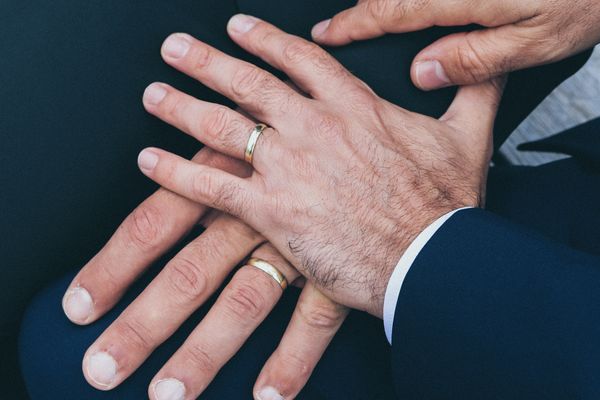“Gaaaaayy,” was what my cellphone screen displayed.
Earlier, I had witnessed two of my friends arguing over differing views on marriage/domestic partnerships. Waiting until all was calm, I told W (the guy who began the argument), “hey, I’m going to send you something so you can check it later!”
I come home a few hours later, and to my surprise, I see an unread message from this friend, beginning with the much-emphasized word: “Gaaaaayy. . .”
In the past, I would have just dismissed this one word which preceded many thereafter. However, I am not going to stand to see this word, nor any word used against certain individuals in a negative manner. W did not know why I responded to the message by asking him to elaborate on his use of the word “gay.” I was mainly curious to know why “gay” would be the first term to come to his mind when he saw an image of a poetic verse that had a mix of bright colors as its background. Although, I can make my assumptions, what caught my attention the most was the ease in which he said this word, almost without much hesitation.
W eventually apologized for using the word, since he thought I took it offensively—since I have close relatives who identify as gay. He also mentioned he has a friend who is gay.
There are two things that I hoped he would understand, which I hope many people—especially those who still use this term as an insult to masculinity— get to understand: one, having a friend who is gay does not give you permission to use the word as a derogatory term; two, I am not the one who will feel the biggest offense by this comment. After all, I am a heterosexual male.
To elaborate on these last two points, if you have a friend who is Mexican (which is what I am), that would not give you permission to call someone else a spic or a wetback, now would it? It’s different if you are part of that group and joking with people from the same group. However, tonight, this was not the case. W, who used the word “gay” with a negative connotation, is a heterosexual male himself. Yes, sure, he has a friend who is gay. But, is he gay? Has he gone through the hurt, the shaming, the self-guilt, the discrimination, and all other negative experiences that come with finally accepting oneself as gay? No. W’s friend does…which brings me to the question, “how can you negatively use the word ‘gay,’ knowing you have a friend who identifies as gay?” If you still use the word as an insult to masculinity, then it means you don’t fully understand your friend who lives a life as a homosexual male. I, myself, have close relatives who identify as gay, bisexual, or lesbian; now knowing what they go through on a daily basis is enough to stop me from using derogatory terms against people in similar circumstances.
My second point was that I won’t feel the full magnitude of W’s offensive display of this word. The people who will feel it will be the LGBTQ+ community who is constantly being targeted for just being who they are. While tonight’s occurrence did not involve any one being directly offended, you can just imagine how many more people will continue to use the word “gay” to describe something less masculine. You can just imagine how many more of these individuals will carry on this same way of thinking and spread it to their inner circle of friends and close family members, allowing it to become acceptable behavior.
If we don’t stop the negative use of homophobic slurs within even our own circle of friends, then we are simply contributing to the issue of homophobia present in our society. We are giving individuals like W (who is naïve about the reality of homosexuality and what a lifestyle as a homosexual entails) a sign of approval, allowing them to continue using words in such a discriminatory and ignorant manner.
We must strive to better our society, not make it more backwards—especially amidst the numerous instances of hate-crime that are currently prevalent in our nation.





















